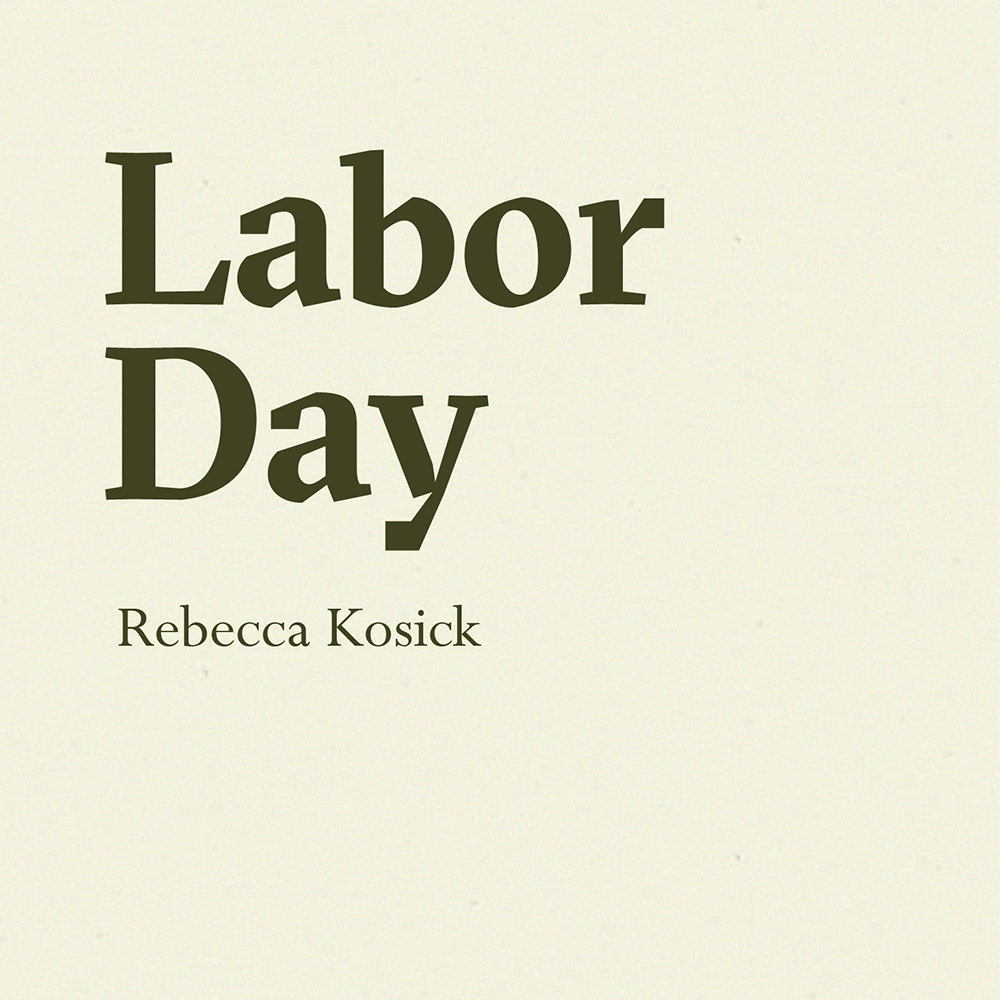
Labor Day
Rebecca Kosick
-
Paperback, 72pp.
ISBN: 978-0-9994-3134-4
Retail Price: $16.00
-
Spring 2020
Book Description
In Labor Day — a long serial poem in fifty-six parts — Rebecca Kosick pursues a series of movements in and out of the natural and economic landscapes of the postindustrial Midwest at the turn of the twenty-first century, attempting to incarnate a language adequate to memory, a memory adequate to place. Kosick’s verse modulates from auratic to frank, stately to aching, its presiding recollective mood accumulating like a mist over a warming landscape: scattered homophones peer up through layers of sediment, once-familiar terrain is eroded by diluvial, counterintuitive etymologies. The rhetorical layering of Labor Day is memory’s residue, a "paused emptiness of season" that freezes an instant only to watch it dissolve under charged scrutiny. There is something here of the animistic sociability and glancing observation of Dorothy Wordsworth’s journals, offset by a strain of Hopkins’s providential empiricism, a tender attunement to inscape whose materiality can take a sudden Steinian swerve into resonant disaggregation. While formally hovering on this threshold between lyric excavation and sonic concreteness, the poems unfold in a georgic, postindustrial reality in which haleness retires each day only an arms-length from hardship. Held in counterpoise by disrupted cycles of care, riven efforts against forgetting, Labor Day becomes the genius loci it sets out to summon, constructing — not unambivalently — a sonic space to stand for those places that memory can’t reconstruct.
Praise for Labor Day
Rebecca Kosick’s Labor Day shows how language matters: how its urgency, its call to us, is concomitant with its materiality, its sound and place and shape. In these poems, particles of words slip and resettle between lines, homophones reconfigure families of meaning that, like the exposed frame of a decaying building, bear witness to the endurance of structures that no longer hold, or hold differently than once intended. This book works through linear and circular, simultaneous time, through memory as erosion and presence. I grew up in the upper Midwest, in settings similar to those evoked by these poems, and this book reminds me of the ambitions I had for its landscape, of the stillness of a wooded night, of the modesty that allows for a clarifying vision, where clarity is a quieting form of liberation. Reading these poems now, at a distance from the place I at once loved and longed to leave, I am reminded that the intellect, a faculty one might (falsely) seek as an escape from the material, belongs to the ache of the heart.
—Janet Hendrickson
About the Author

Rebecca Kosick lives in Bristol, England, where she codirects the Bristol Poetry Institute and teaches in the School of Modern Languages at the University of Bristol. She is the author of the monograph Material Poetics in Hemispheric America: Words and Objects, 1950–2010, and has published numerous articles, essays, and other fragments that address, translate, or are themselves poetry. She grew up in Michigan.
Visit her website [here].
